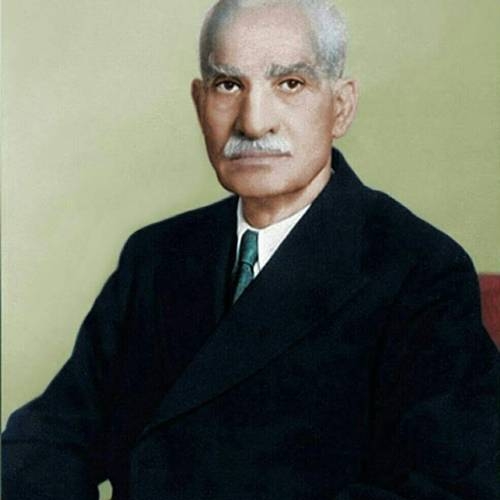Father of Iran
Reza Shah the Great was the father of modern Iran
Reza Shah Pahlavi (March 15, 1878- July 26, 1944) was an Iranian soldier and the founder of the Pahlavi dynasty

Reza Shah Pahlavi (March 15, 1878- July 26, 1944) was an Iranian soldier and the founder of the Pahlavi dynasty
Reza Shah Pahlavi (March 15, 1878- July 26, 1944) was an Iranian soldier and the founder of the Pahlavi dynasty. As a politician, he was the Minister of War from 1921 to 1925 and the Prime Minister of Iran during the Qajar period from 1923 to 1925. Reza Shah, who tried unsuccessfully for republicanism, became the king at the end of the Qajar period in 1925 and resigned with the occupation of Iran by the allies in 1941 and left the kingdom to his crown prince Mohammad Reza. Reza Shah spent his childhood in poverty. He joined the army at the age of 12 and progressed through the ranks. On January 15, 1921, he was appointed as the commander of the Kazakh forces by the British general Edmund Ironside, and two months later, in the coup d'état on February 22, 1921, the Kazakh forces under his command captured Tehran. Reza Shah, first as the Minister of War, destroyed many riots and bandits, and then on October 28 1923, he was appointed to the position of Prime Minister by the order of Ahmad Shah Qajar, and two years later, with the vote of the Constituent Assembly, he became the king. Although Reza Shah appeared in the field of Iranian politics with a coup d'état, he owed the kingdom to his perseverance and determination to put things in order in the position of the Ministry of War and Prime Minister.
Iran witnessed the creation of a new order during Reza Shah's reign. He founded modern institutions in Iran, the most important of which are the national railway, the modern army, the modern judiciary and Tehran University. At the same time, in order to guarantee his power, he violated the constitution and dissolved the independent parties and took the parliamentary immunity of the representatives of the National Council. Also, he started social reforms and wanted an Iran that was free from the influence of religious clerics, foreign intrigues, nomadic rebellion and ethnic differences, and on the other hand, had European-style educational institutions, modern women working outside of Home to a modern economic structure with state-owned factories, communications networks, investment banks, and chain stores. In order to achieve his goal of rebuilding Iran according to the image of the West, he began to de-religiousize, remove tribalism, expand nationalism, develop education and state capitalism.
Reza Shah's supporters consider him the "Father of Modern Iran" and his kingdom was called the "Enlightened Dictatorship" by his supporters, who pursued the ideals of the Enlightenment movement in Iran, but slowly introduced a form of individual autocracy in the government.
With the beginning of World War II, despite the declaration of neutrality in 1941, the Allies occupied Iran. Then, with the British ultimatum, Reza Shah was forced to resign, leave Iran and hand over the kingdom to his crown prince Mohammad Reza Pahlavi. Finally, three years later, at the age of 66, he died in Johannesburg, South Africa.